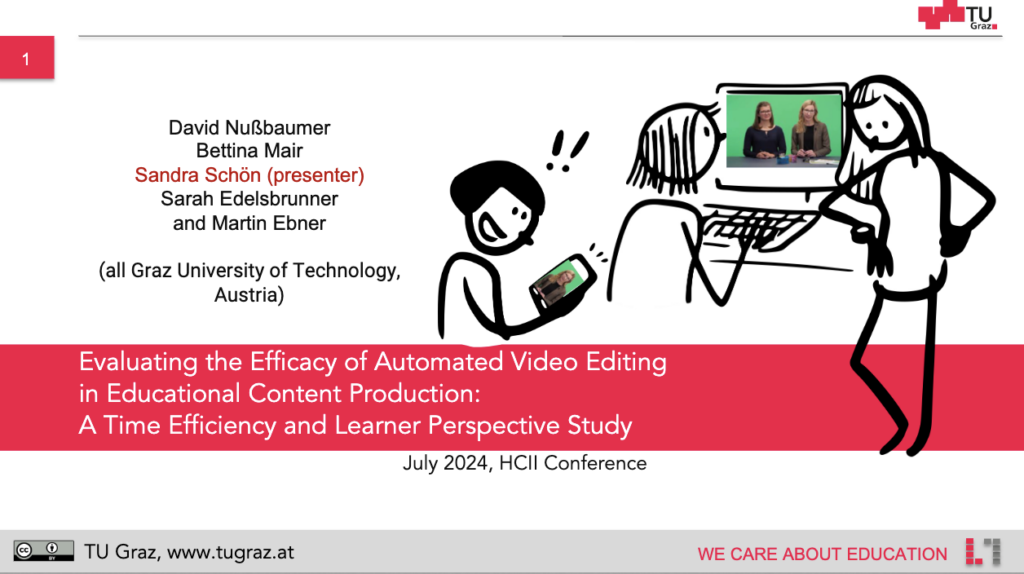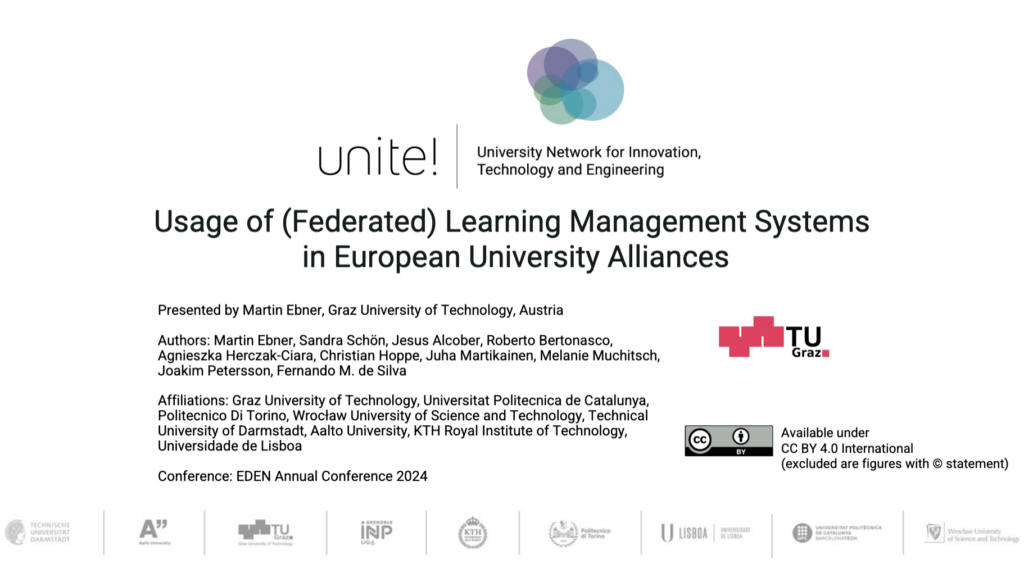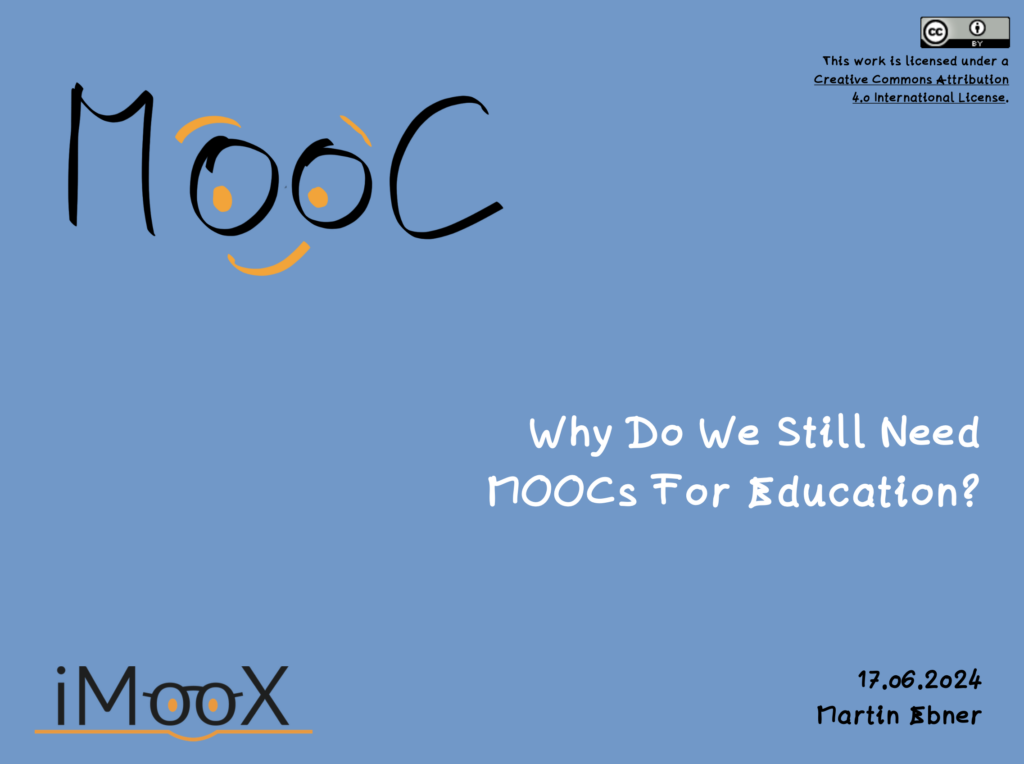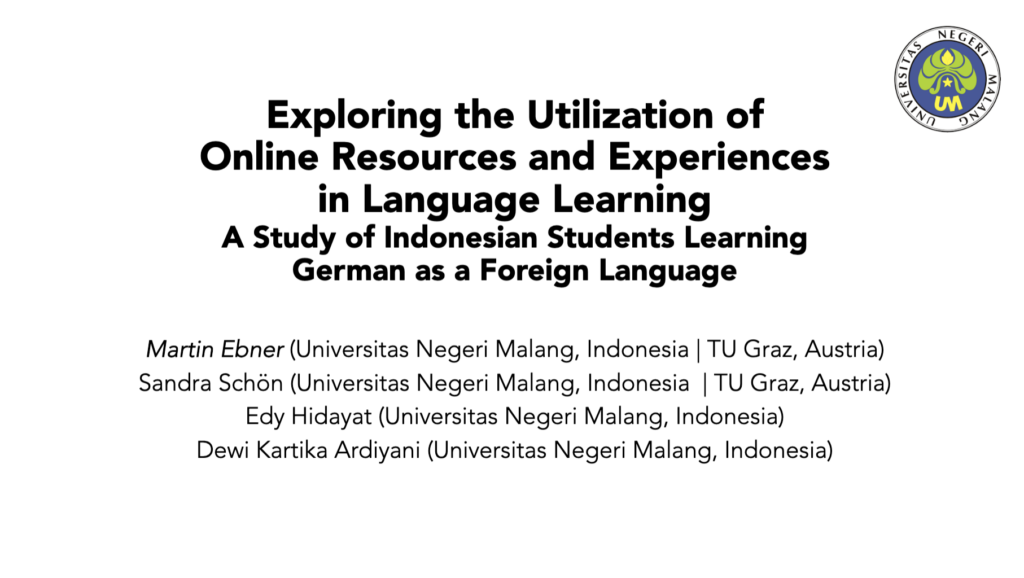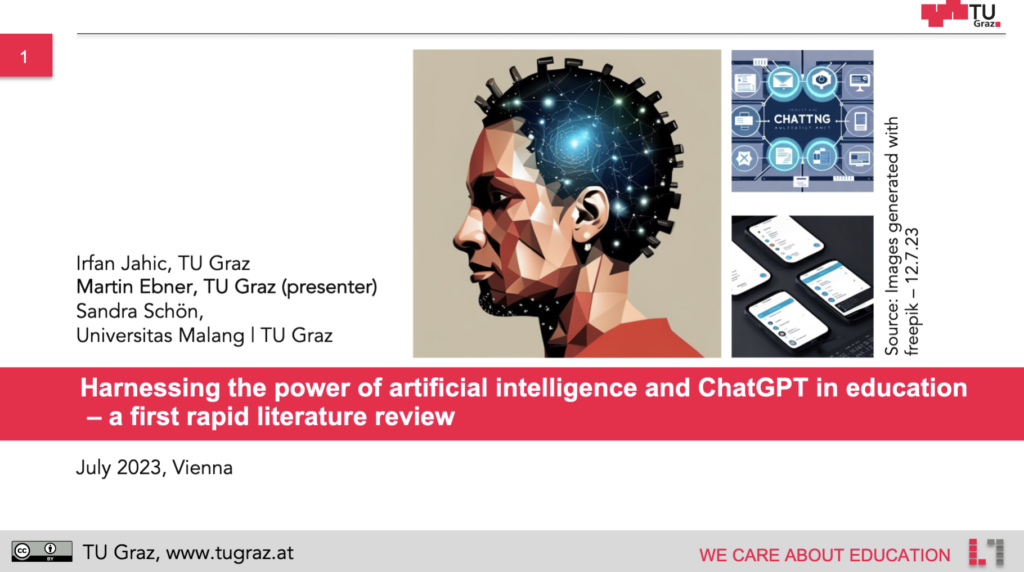Our publication at this year’s ED-Media conference titled „The use of programming tasks in interactive videos to increase learning effectiveness at MOOCs“ is now available online.
Abstract:
The importance of digital technologies, especially videos, increased over the course of the last few years. Whether they are used to watching the latest news or for entertainment purposes, one could say they have become almost omnipresent in everyday’s life. This development has also influenced education. Therefore, we want to examine the effects of interactive overlays such as programming tasks in interactive learning videos. For this purpose, a MOOC course was created to gain information about participants` learning success. To evaluate whether the interactive elements have a positive effect, two test groups completed the course. The results revealed that the test group with overlays performed better on average than the group without. Some limitations had to be considered, such as the smaller peer group that watched the videos without interactive elements.
[article @ publisher’s homepage]
[article @ ResearchGate]
Reference: Geier, G., Weiß, M., Wachtler, J. & Ebner, M. (2024). The use of programming tasks in interactive videos to increase learning effectiveness at MOOCs. In T. Bastiaens (Ed.), Proceedings of EdMedia + Innovate Learning (pp. 38-47). Brussels, Belgium: Association for the Advancement of Computing in Education (AACE). Retrieved July 22, 2024 from https://www.learntechlib.org/primary/p/224503/.

